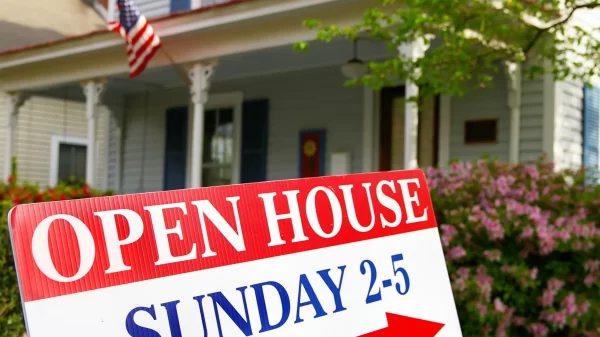|
Getting your Trinity Audio player ready...
|
It’s the phone call that realtors hate – the 11th-hour, “there’s a problem” call. The call from a banker or a title search company that threatens to blow up a deal, or at the very least, will send a realtor scurrying about to fix the problem and save the sale.
Those calls, hated as they are, are fairly common in the business of real estate, where dozens of variables and different people with different objectives can blow up a deal at any time. Montgomery realtor Charles Adams knows them well. In his career, he’s dealt with pretty much every last-minute problem imaginable.
Or at least he thought so until early last year, when a call from a title company threw him for a loop. There was what appeared to be a lien on the property that Adams’ client was attempting to sell – but not your typical lien.
“They said it was another realty company that had a contract to sell the property,” Adams said. “It was from some company I’d never heard of – MV Realty.”
After digging into it a bit, Adams was even more dumbfounded. The contract, which his client signed a few years earlier, was basically a standard listing agreement, giving MV Realty the exclusive right to sell the property. If the property owner contracted with another realtor, or even sold the property herself, the contract guaranteed that MV Realty got 6 percent of the sales price off the top.
And the really strange part: The contract was for 40 years.
“I couldn’t believe it,” Adams said. “I mean, 40 years. What kind of a contract is that? It couldn’t be legal.”
But in the state of Alabama, it is. The law related to real estate listing contracts mandates only that listing agreements have a start date and an end date.
“It had an end date, alright!” Adams said. “It was 40 years from now, but it was an end date.”
Adams took the issue to his broker, Sherry Weeks, who runs ERA Weeks & Browning Realty in Montgomery. It was a new issue for her too. She started asking around with other brokers, and several agents and brokers started investigating both the long-range listing agreement and MV Realty.
What they found surprised them. MV Realty had a presence in numerous states and had entered into long-term listing agreements with hundreds of people in the state of Alabama. In the Jefferson County area alone, there were nearly 200 agreements.
“It was shocking, to be honest,” said a broker from Autauga County who agreed to speak on condition of anonymity because he didn’t want to be viewed as attacking another real estate company. “I’d never heard of this bunch but they were doing this all over the state and all over the country. And other states were already taking action against them to put a stop to it, because it’s very predatory.”
The Program
MV Realty has been around since 2014, when it was founded by reality TV star Amanda Zachman (formerly Amanda Zuckerman). Zachman gained brief notoriety as a villain on the CBS show “Big Brother,” where she was captured on camera making racist remarks.
The Delray Beach, Fla., company has made Zachman a fortune. According to a federal lawsuit filed last year, the company has signed up more than 30,000 people in 33 states to its “homeowner benefit program.”
The scheme – and some use the word “scam” – works like this, according to the lawsuit: MV Realty seeks out homeowners who are in the midst of financial hardship, most likely by sifting through pre-foreclosure information distributed by banks. A representative from MV Realty makes contact with the troubled homeowner and offers what appears to be a great deal – quick cash.
In exchange for anywhere from a few hundred dollars to a few thousand dollars, homeowners sign a complicated contract that gives MV Realty the right to sell their property. What many homeowners don’t realize, however, is that the contract term is for 40 years and that MV Realty records the contracts with the county probate office, effectively placing a lien on the home until the contract is satisfied. The only way out of that contract for a homeowner is to pay MV Realty 6 percent of the value of the home, as assessed by MV Realty.
A company spokesperson told APR in a statement that the “innovative” program was “a benefit to homeowners.”
“The HBA Program is an innovative option that is first and foremost designed to benefit homeowners by ensuring they are compensated for the exclusive right to list their home,” the statement read. “Under a traditional real estate transaction model, homeowners would enter into an exclusive 6-month listing agreement with agents who don’t provide the homeowner any payment for this exclusive right.
“MV Realty remains confident that the Homeowner Benefit Program fully complies with the law and benefits consumers who receive a cash incentive to select MV Realty as their listing agent.”
The statement also said that MV Realty was pausing its program in Alabama while it addressed concerns about the program.
Several states, including Florida, Massachusetts and Pennsylvania, have taken legal action against MV Realty, deeming the “homeowner benefit program” to be predatory. In fact, even as the company was signing up dozens of homeowners in Alabama, it had agreed to halt its program in Florida while it addressed concerns raised by that state’s attorney general.
In North Carolina, the AG’s office and state real estate commission have opened investigations into MV Realty. The Pennsylvania AG’s office also filed suit against MV Realty, calling the “homeowner benefit program” a “scam that exploits Pennsylvanians in vulnerable financial situations.” The AGs in both North Carolina and Pennsylvania said they received complaints from consumers and researched how other states had handled the situation.
Help, please
Things have worked a bit different in Alabama, according to several brokers and realtors who spoke with APR. After learning of the issue early last year, they said they went to the Alabama Real Estate Commission to voice concerns. They mostly found deaf ears, they said.
“They basically told us there wasn’t much they could do because the practice was legal in Alabama,” said one broker, who spoke on condition of anonymity because he said he feared reprisal from “the agency that holds the license to my livelihood.”
“They just kept saying that legal was looking into it but nothing could be done,” he said. “Nothing got done.”
In a response to APR, Alabama Real Estate Commission general legal counsel Starla Leverette essentially provided the same answer.
“We are aware of the practice by one of our licensed companies to engage in unusually lengthy listing contracts,” Leverette said. “The Commission has investigated the legality of these contracts and found that no existing real estate license law limits the length of time agreed to in a listing contract. Therefore, no legal basis exists to bring an action against licensed real estate companies or brokers who engage in the practice.”
Leverette said that AREC had instead “worked with our partners and trade associations to develop proposed legislation” that would address the situation.
No one, apparently, ever looked at how other states were handling the matter, and the Commission never took the issue to Alabama Attorney General Steve Marshall. Amanda Priest, the communications director for the AG’s Office, told APR that the office had not received a complaint about MV Realty and was unaware of the problems. After learning about the problem and its prevalence in Alabama, Priest said the AG’s Office would like to encourage any consumers who have issues with the company to contact their office (1-800-392-5658).
Leverette said AREC instead contacted the Better Business Bureau and relied on it to “educate the public about the potential legal ramifications” of MV Realty’s “homeowner protection program.” It’s unclear what the BBB did to educate consumers. APR could find no messaging from BBB Alabama concerning MV Realty or its listing practices. The company has an A- rating on the BBB Alabama website. (In contrast, the BBB Florida website page for MV Realty features a red alert at the top, warning consumers of issues with contracts, and the company has an F rating in that state.)
Association of Realtors
The trade partner mentioned by Leverette – the one working on legislation – was the Alabama Association of Realtors, which is where the group of brokers turned when they felt AREC wasn’t responsive enough. It appears to have been the right turn.
Earlier this week, the Alabama Legislature passed the legislation crafted by the Realtors Association. The bill, SB228, which was shepherded through the legislature by Sens. Sam Givhan, Shay Shelnutt and Dan Roberts and Rep. Joe Lovvorn, places a one-year limit on listing agreements, which should put an end to MV Realty’s “homeowner protection program.” It now goes to Gov. Kay Ivey to be signed into law.
“After receiving numerous reports from our members about the harm being done to Alabama homeowners by this scam, the Alabama Association of Realtors approached members of the legislature to put an end to this shameful practice,” a statement from the Realtors Association said. “As an association, we have worked closely with the bill’s sponsors to make sure this never happens again. This legislation is the product of a grassroots response from the members of our association, and the credit for this action should go to our members and the legislators who have sponsored and fought for this consumer protection.”
In addition to ending the 40-year listing agreement, the legislation also banned the practice of wholesaling property – which had drawn complaints from numerous realtors and brokers around the state. Wholesaling involves a buyer entering into a deal with a seller, but then locating a purchaser willing to pay more for the property and shifting the sale to the secondary buyer for a fee.
“We’re certainly happy that the Association stepped up and got this done,” said a broker from the Birmingham area. “There were so many people in this area who were being taken advantage of by this so-called program from MV. If you’re not in this business every day, you don’t understand all of the legal circumstances and what a listing agreement means. And if you’re in bad need of money, you don’t much care. That’s not a good way to do business.”
It was also the outcome that Adams hoped for. He saw firsthand how the program almost destroyed his client. She was facing foreclosure on her home primarily because her husband died suddenly and she was left in poor financial shape. The long-term listing agreement almost cost her the home sale. It did cause her to lose thousands of dollars – money she couldn’t afford to lose.
“She nearly lost her house (to foreclosure) over this – would have lost it had a bunch of people not worked hard to get the sale through in time,” Adams said. “It’s just not a way to do business.”













































